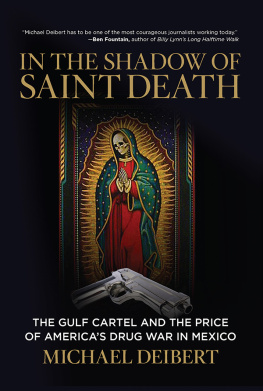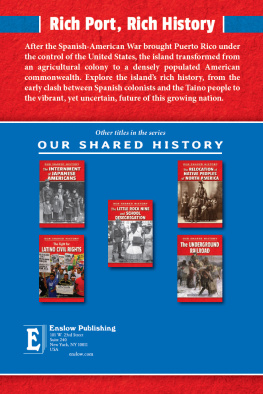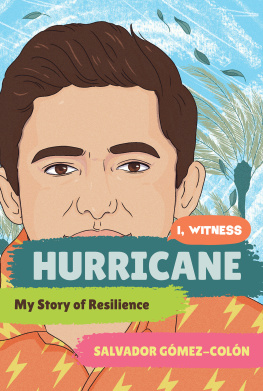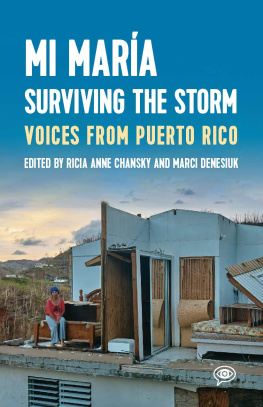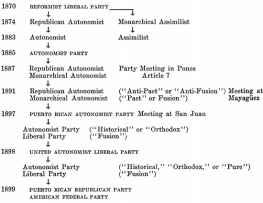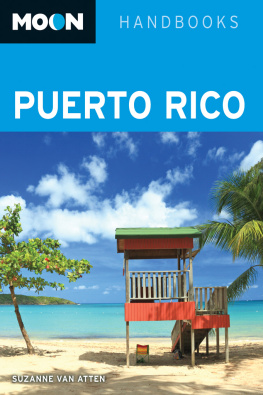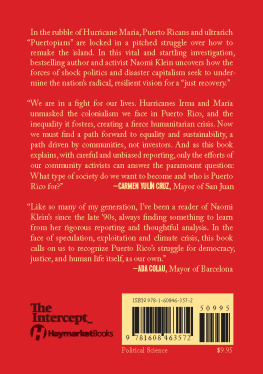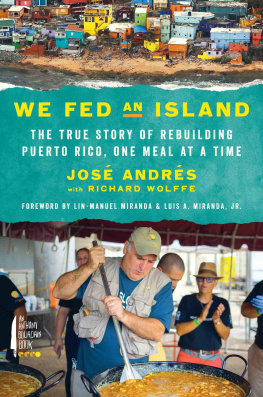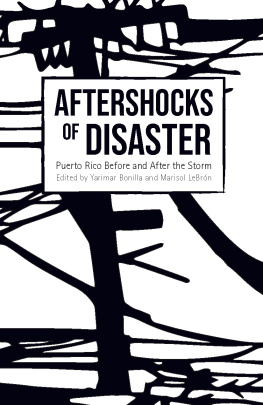Deibert - When the sky fell: Hurricane Maria and the United States in Puerto Rico
Here you can read online Deibert - When the sky fell: Hurricane Maria and the United States in Puerto Rico full text of the book (entire story) in english for free. Download pdf and epub, get meaning, cover and reviews about this ebook. City: Puerto Rico, year: 2019, publisher: Apollo Publishers, genre: Politics. Description of the work, (preface) as well as reviews are available. Best literature library LitArk.com created for fans of good reading and offers a wide selection of genres:
Romance novel
Science fiction
Adventure
Detective
Science
History
Home and family
Prose
Art
Politics
Computer
Non-fiction
Religion
Business
Children
Humor
Choose a favorite category and find really read worthwhile books. Enjoy immersion in the world of imagination, feel the emotions of the characters or learn something new for yourself, make an fascinating discovery.

When the sky fell: Hurricane Maria and the United States in Puerto Rico: summary, description and annotation
We offer to read an annotation, description, summary or preface (depends on what the author of the book "When the sky fell: Hurricane Maria and the United States in Puerto Rico" wrote himself). If you haven't found the necessary information about the book — write in the comments, we will try to find it.
Deibert: author's other books
Who wrote When the sky fell: Hurricane Maria and the United States in Puerto Rico? Find out the surname, the name of the author of the book and a list of all author's works by series.
When the sky fell: Hurricane Maria and the United States in Puerto Rico — read online for free the complete book (whole text) full work
Below is the text of the book, divided by pages. System saving the place of the last page read, allows you to conveniently read the book "When the sky fell: Hurricane Maria and the United States in Puerto Rico" online for free, without having to search again every time where you left off. Put a bookmark, and you can go to the page where you finished reading at any time.
Font size:
Interval:
Bookmark:
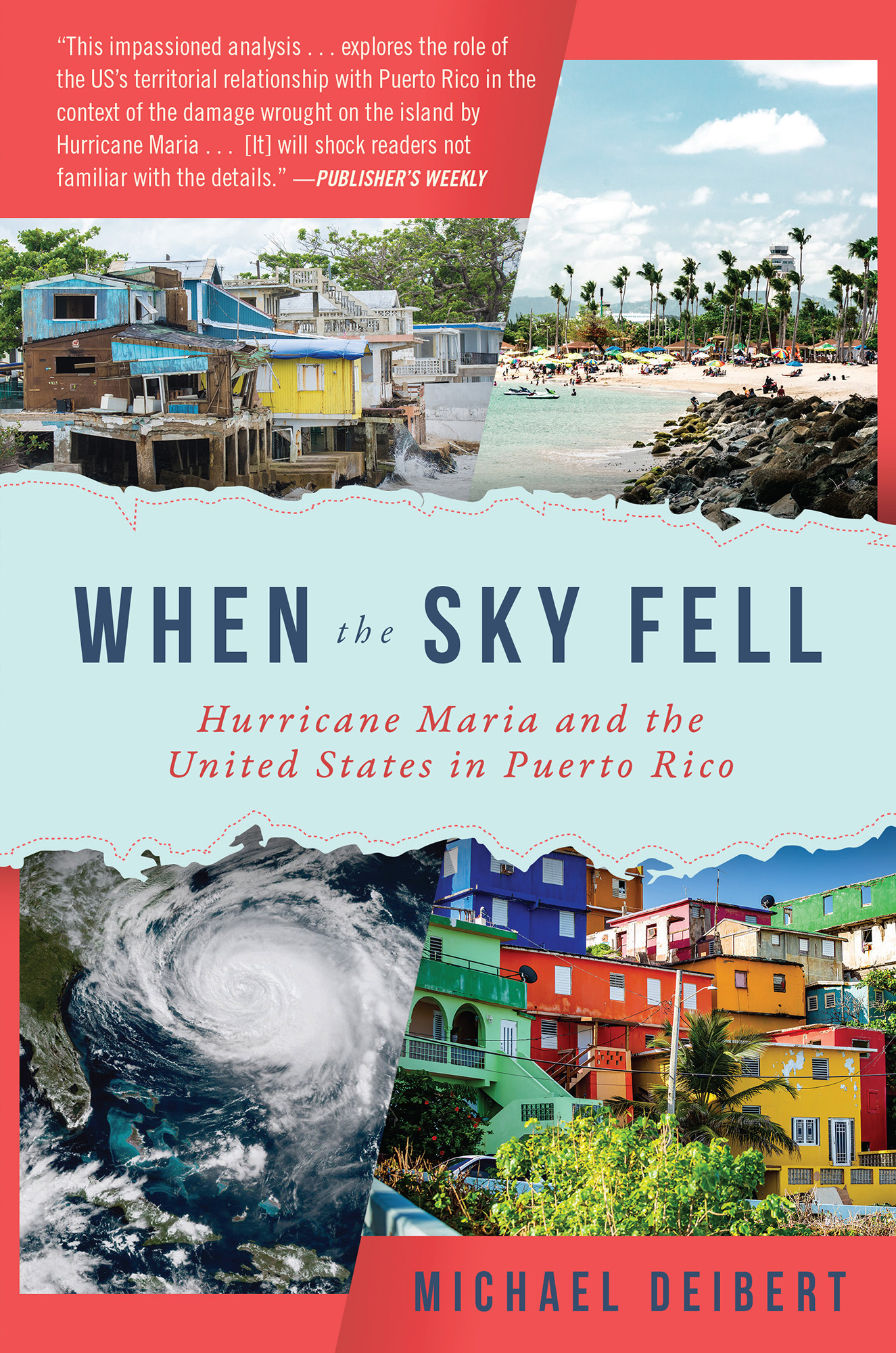
WHEN the SKY FELL
WHEN
the
SKY FELL
Hurricane Mari a and the United States in P uerto Rico
MICHA EL DEIBERT

When the Sky Fell: Hurricane Maria and the United States in P uerto Rico
Copyright 2019 by Micha el Deibert
All rights reserved. No part of this book may be used or reproduced in any manner whatsoever without the written permission of the publisher, except in the case of brief excerpts in critical reviews or articles. All inquiries should be sent by email to Apollo Publishers at info@apollopublis hers.com.
Apollo Publishers books may be purchased for educational, business, or sales promotional use. Special editions may be made available upon request. For details, contact Apollo Publishers at info@apollopubli shers.com.
Visit our website at www.apollopubli shers.com.
Library of Congress Cataloging-in-Publication Data is availabl e on file.
Print ISBN: 978-1-9 48062-36-7
Ebook ISBN: 978-1-9 48062-37-4
Printed in the United States o f America.
This book is dedicated to the memories of those who lost their lives during Hurricane Maria and its aftermath, and those who fought to save them. And to the memory of my grandfather Ja mes Breon.
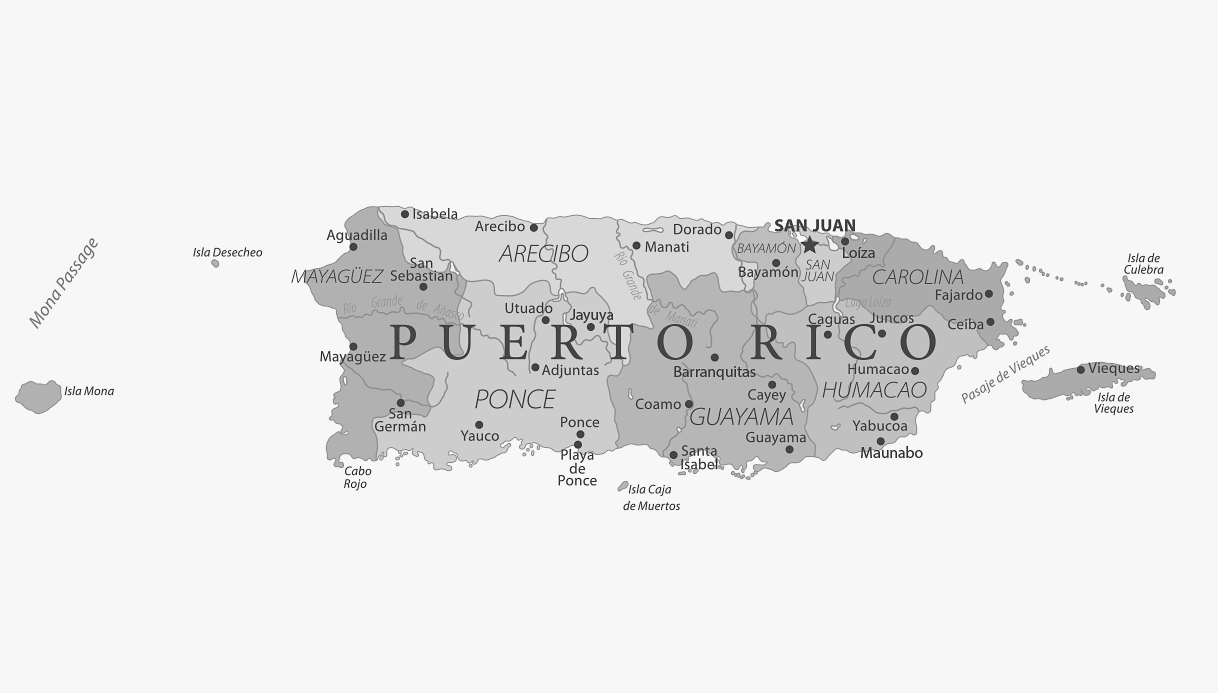
Be not afeard; the isle is full o f noises,
Sounds and sweet airs, that give delight and hurt not.
Sometimes a thousand twangling in struments
Will hum about mine ears, and someti me voices
That, if I then had waked after lo ng sleep,
Will make me sleep again: and then, in dreaming,
The clouds methought would open and sh ow riches
Ready to drop upon me that, when I waked,
I cried to dr eam again.
William Shakespeare , T he Tempest
The man trudged up the road, behind him a vista of undulating mountains sloping green away in the distance. Between him and the cordillera, the towns winding streets were studded with fallen utility poles and power lines strewn along the road like confetti.
As he got closer I could see his weathered face, freed from a band of shadow as the sun burned down through a cerulean sky. He held a walkie-talkie in his hand that periodically erupted to life with messages delivered in an urgent staccato crackle.
What you are looking at is the work of five decades destroyed, the man told me. His name was Francisco Lopez, and for nearly twenty-one years he had been the mayor of the town of Barranquitas, where we now stood in the central mountains of Puerto Rico. All the roads have been damaged, six bridges have collapsed, around twelve hundred homes were destroyed. Communication has basically been cut off. This is a critical situation. We are working day and night to get back on our feet.
Three weeks earlier, Hurricane Maria, a Category 5 storm with winds of 160 miles per hour, had roared out of the Atlantic like a banshee chasing down its prey and had rent devastation on the island that few could have conceived of only days before. Under its wind and lashing rains, entire neighborhoods were destroyed, whole towns were cut off, and the young, sick, and otherwise vulnerable were left to largely fend for themselves in the midst of a pervasive absence of any help coming from the federal government on the mainland of the United States. I had arrived on the island a few days earlier, and a local photographer, Nydia Melendez Rivas, and I had been driving around, taking stock and trying to document the destruction. On a meandering path along the coast from the capital, San Juan, we had passed through scenes of biblical devastation. Driving around Barranquitas, one saw the remnants of bridges resting in heaps at the bottom of ravines amid a backdrop of the fevered attempts by local officials to bring aid to those who needed it.
Barranquitas was very affected and without water because the roads were very impacted, but little by little things are getting better, barrel-chested, mustachioed Sgt. Jos Oliveras of Puerto Ricos National Guard told me as private vehicles from the municipality came to a converted sports complex to deliver food and other necessities to those in need.
A little further down the road, a makeshift medical clinic had been set up by a Methodist church, and volunteers and doctors saw waves of people seeking medical attention. We wandered through the assemblage until we came upon Eileen Rivera Diaz, the wife of the pastor of the church where the clinic was b eing held.
The services for people with medical complications, with cancer, diabetes, hypertension, lupus were very affected by the storm, she told us as we spoke on a back balcony that overlooked a lush valley, with dark clouds rolling menacingly on the horizon. There is not a strong presence of the federal governm ent here.
There are a lot of neighborhoods here without access to medical care, to lights, to water, to medicines, Oscar Ruiz of the Sociedad Puertorriquena de Endocrinologia y Diabetologia, whose group was traveling around the island conducting health clinics, told me. We are trying to help, but there is a gr eat need.
Though only dimly understood on the mainland, Puerto Ricos relationship with the United States had been the defining factor of its political life for more than a century. After four hundred years of Spanish rule, the United States seized the island from Spain in 1898 during the Spanish-American War. For the last 121 years, Puerto Rico has been an overseas territory of the United States, which some have seen as a boon of good fortune and others as relegating it to the status of a second-class colonial outpost. Its native-born residents are American citizens, but do not have a vote in the US Congress and cannot vote in general presidential elections. (This means that there is effectively no representation for Puerto Ricos population of nearly 3.2 million people. Wyoming, by contrast, has two US senators and a member of the House of Representatives while boasting a population of only around 580,000.)
I had something of a family history with Puerto Rico myself. Between 1971 and 1974, en route to Sunset Park, Brooklyn, from Argentina, my grandmother and my grandfather, a Lutheran minister, lived in the western city of Mayaguez, which my grandfather wrote about rhapsodically in his memoirs. In a two-bedroom apartment a block from the stadium where the Indios de Mayaguez baseball team played, and across the street from a sprawling caserio (as public housing projects are known on the island), my grandparents lived under the shade of a coconut palm and lime trees and gazed out on the spectacular sunsets above the Bahia de Mayaguez, just to the west, every night. My grandfather opened an after-school tutoring program for the children of the caserio in their apartment and walked through it nearly every day, learning a bit about peoples lives. Even among the caserios roughest delinquents, he said he never felt threatened, and spoke frequently about the intense natural beauty of t he island.
In many ways, Barranquitas was a unique town. It had been the birthplace of Luis Muoz Rivera, a journalist, poet, and politician who had been one of the towering figures in the islands political life of the late nineteenth and early twentieth centuries, and who had served as Puerto Ricos resident commissioneras the elected but nonvoting member of the United States House of Representatives is calledfrom 1911 to 1916. The JonesShafroth Act, which was crafted with significant input from Don Luis, as Muoz Rivera was known, and which granted US citizenship to most Puerto Ricans, would come into effect only months after his sudden death in November 1916. Decades later, his son, Luis Muoz Marn, would pick up the familys political mantle, serving as governor from 1949 to 1965 and ushering the island into its Estado Asociado Libre (Free Associated State) hybrid status vis--vis the United States. Commonly referred to as a commonwealth, this status deepened what many saw as the islands quasi-colonial relationship with the giant nation to its north, and continues to this day. Puerto Ricans became US citizens who could travel back and forth to the mainland at will. They could vote in party primaries during US presidential elections but not in the general election itself. They couldand didfight in comparatively large numbers in the armed forces during US conflicts abroad, but a swath of islanders viewed the US presence itself as little more than a military occupation with social-democratic window dressing.
Font size:
Interval:
Bookmark:
Similar books «When the sky fell: Hurricane Maria and the United States in Puerto Rico»
Look at similar books to When the sky fell: Hurricane Maria and the United States in Puerto Rico. We have selected literature similar in name and meaning in the hope of providing readers with more options to find new, interesting, not yet read works.
Discussion, reviews of the book When the sky fell: Hurricane Maria and the United States in Puerto Rico and just readers' own opinions. Leave your comments, write what you think about the work, its meaning or the main characters. Specify what exactly you liked and what you didn't like, and why you think so.

